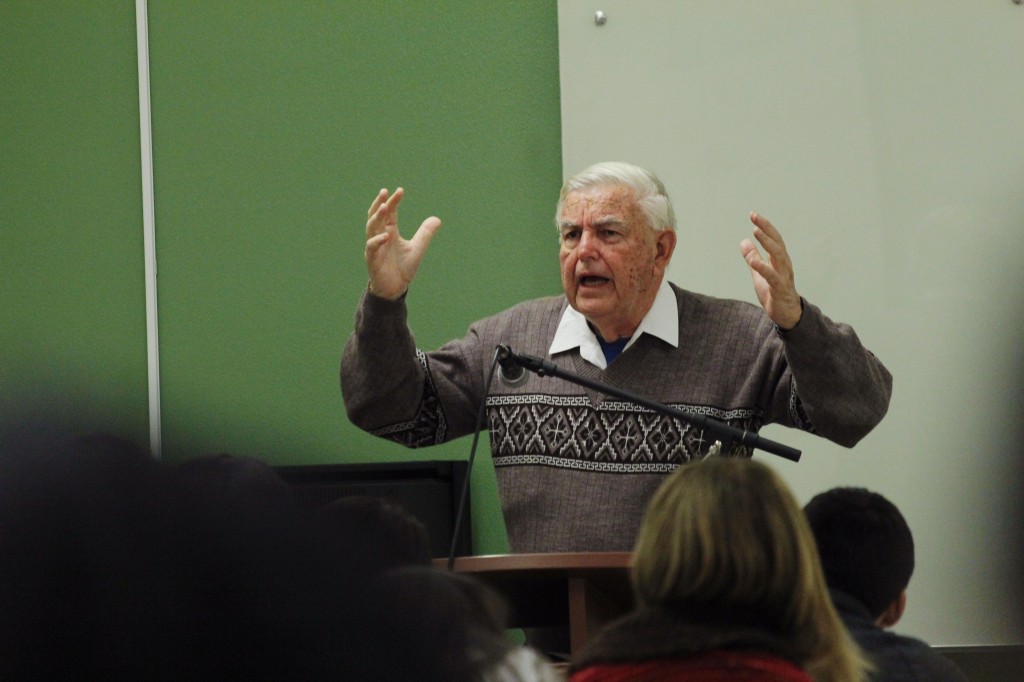
After being approached by two prisoners that he worked with about getting a college education, professor Fernando Pico went from being a prison chaplain to a professor.
Professor Pico, a Puerto Rican writer and activist who served as the president of the Association of Caribbean Historians, spoke in the Old Union on Monday night. In 1990, he was working as the chaplain of a maximum security prison when the inmates asked him about offering college classes at the prison.
“They asked me [if I] could … intervene with the corrections administration so that they could register for the university courses, and have credit for it,” Pico said.
He got in contact with the Metropolitan University of Puerto Rico and they agreed to start The Prisoners University Project, which allowed inmates to enroll in college classes for credit. However, they could not get funding for the project. Pico then went to the federal court for assistance.
“The federal court authorized payments from the fund, which had been made from the fines that the government of Puerto Rico for overcrowding in the prisons,” Pico said.
Class size was capped at five because larger groups of prisoners were considered unsafe. Originally, Pico only taught humanities and Spanish classes, but as the program grew, he branched out into mathematics.
Pico said he volunteered to teach the classes for free, but as the student population grew from two to 150 he felt the need for help additional help.
“Obviously I couldn’t teach every single course so we formed a team,” Pico said. “Young graduate students, young faculty members volunteered without pay to teach at the prison and we had a great team of people.”
Pico said that he wanted this program to be only for maximum security prisoners, because unlike minimum and medium security prisoners, they are not permitted to work.
“I feel that if you have someone in custody for that many years you better have something for them to do; you have to have a project for them,” Pico said. “You can’t just lock them up and see what happens.”
Pico said he wanted to further enrich the inmates’ minds, and was inspired to publish a review of their writing.
“They had a lot of creative stories, and humor,” Pico said. “It was a great thing for people; writing and reading. It was something that they could feel proud of and I think it grew a lot.”
Pico said that of the 150 students, four continued to get a master’s degree after their release from prison and 18 got associate’s degrees. He said that spearheading the program was very fulfilling.
“I thought it was a wonderful experience those 12 years; it was grueling, I had to do a lot of work, but there was a good team of tutors,” Pico said. “I was not alone, and the students were great.”
Raven Gomez, a junior double-majoring in sociology and environmental science, said she was glad to be able to learn about a topic not frequently discussed.
“I feel like it’s a really great way to learn a lot about what’s going on about the world that we don’t necessarily see,” Gomez said. ”I think it was a really good introspection at what is going on in the prison system in Puerto Rico.”
Reynaldo Ortiz, the organizer of the event and an adjunct professor in the Latin America and Caribbean Area Studies (LACAS) program, said he hoped attendees could see how to apply their studies to activism.
“Pico is a very serious social activist, and he spoke about how we understand the world around us and how we can then change it,” Ortiz said. “Whatever you’re learning in the classroom, it has to connect to the reality around us.”


